Building a circular economy.
That is the mantra of Mary Ngechu, the patron and founder of the Kenyan social enterprise Taka Taka Ni Mali.
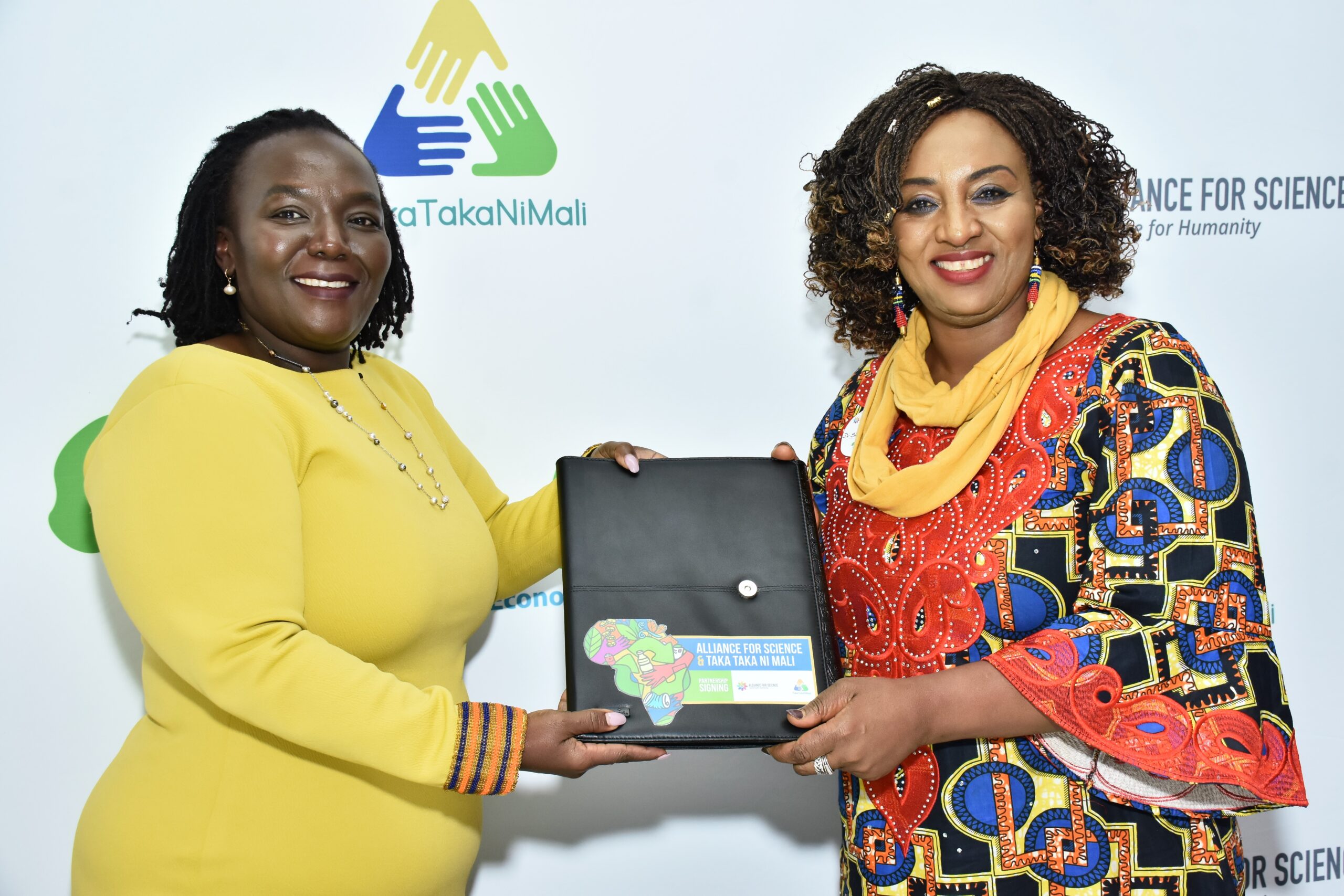
In May 2023, Taka Taka Ni Mali signed a partnership agreement with the Alliance for Science for advocacy on waste management and climate action.
One of the outcomes of the partnership is the Africa Waste is Wealth Series (AWWS) of conferences, and the first one is running in Nairobi, Kenya from June 6 -8, 2023.
“While recycling raw materials for another industry, keep in mind the fact that money is being collected by gleaning the environment of plastics.”
Taka Taka Ni Mali means waste is wealth, and the organization wants to build an ecosystem that provides sustainability through a framework of networks connecting all points and services of waste management in Kenya.
This, Mary says, is not just high-level recycling. It is about making sure raw materials remain in circulation as long as possible.
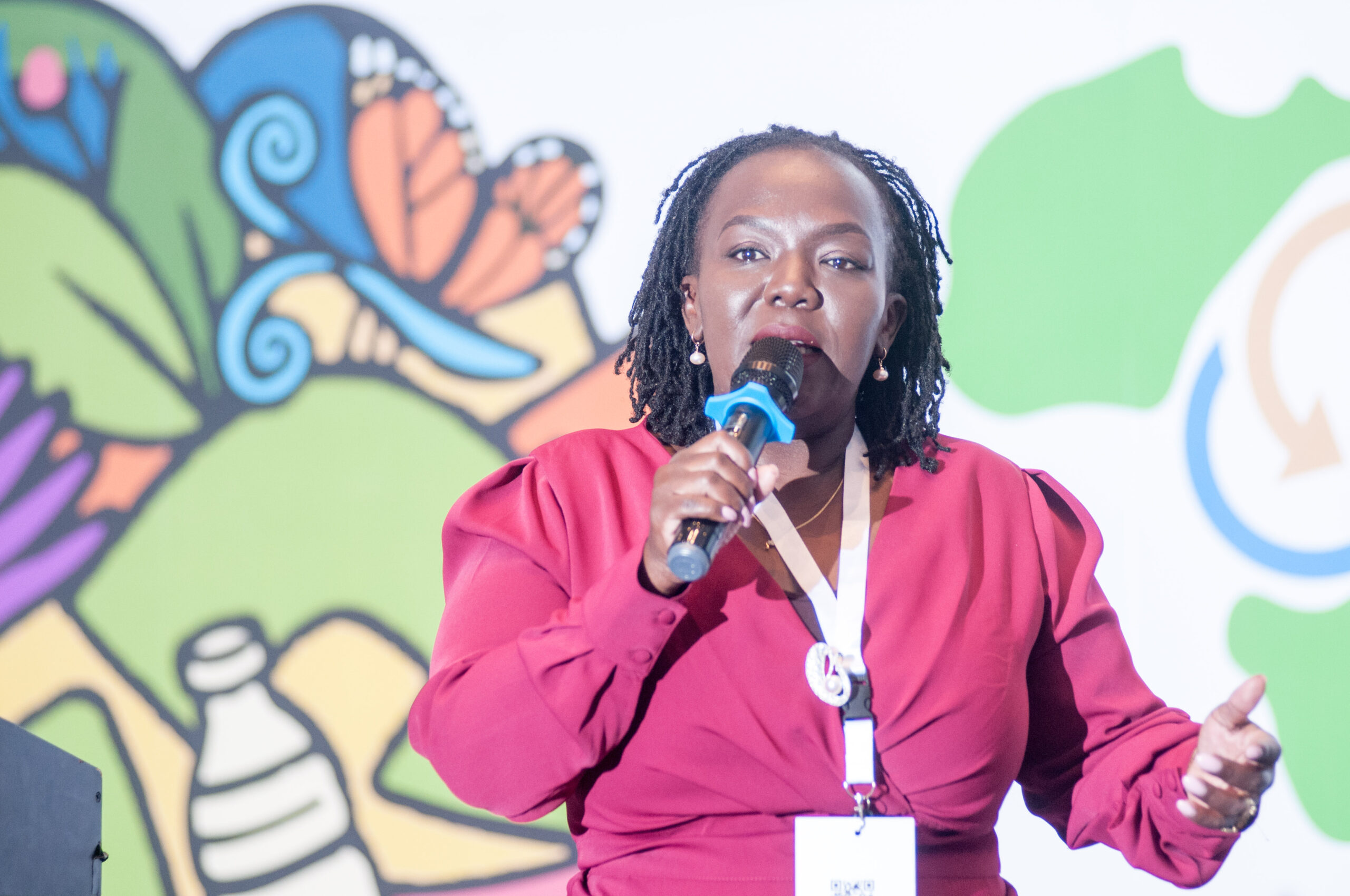
“While recycling raw materials for another industry, keep in mind the fact that money is being collected by gleaning the environment of plastics.
“I have worked on the ground and agree. The younger generation and women take care of the environment for different reasons.
“Women do it to take care of their families and the youth, so they can have a better place to live in. The latter are more educated and know the impact of not caring. They understand the Greenhouse Effect. That, and we don’t have jobs.”
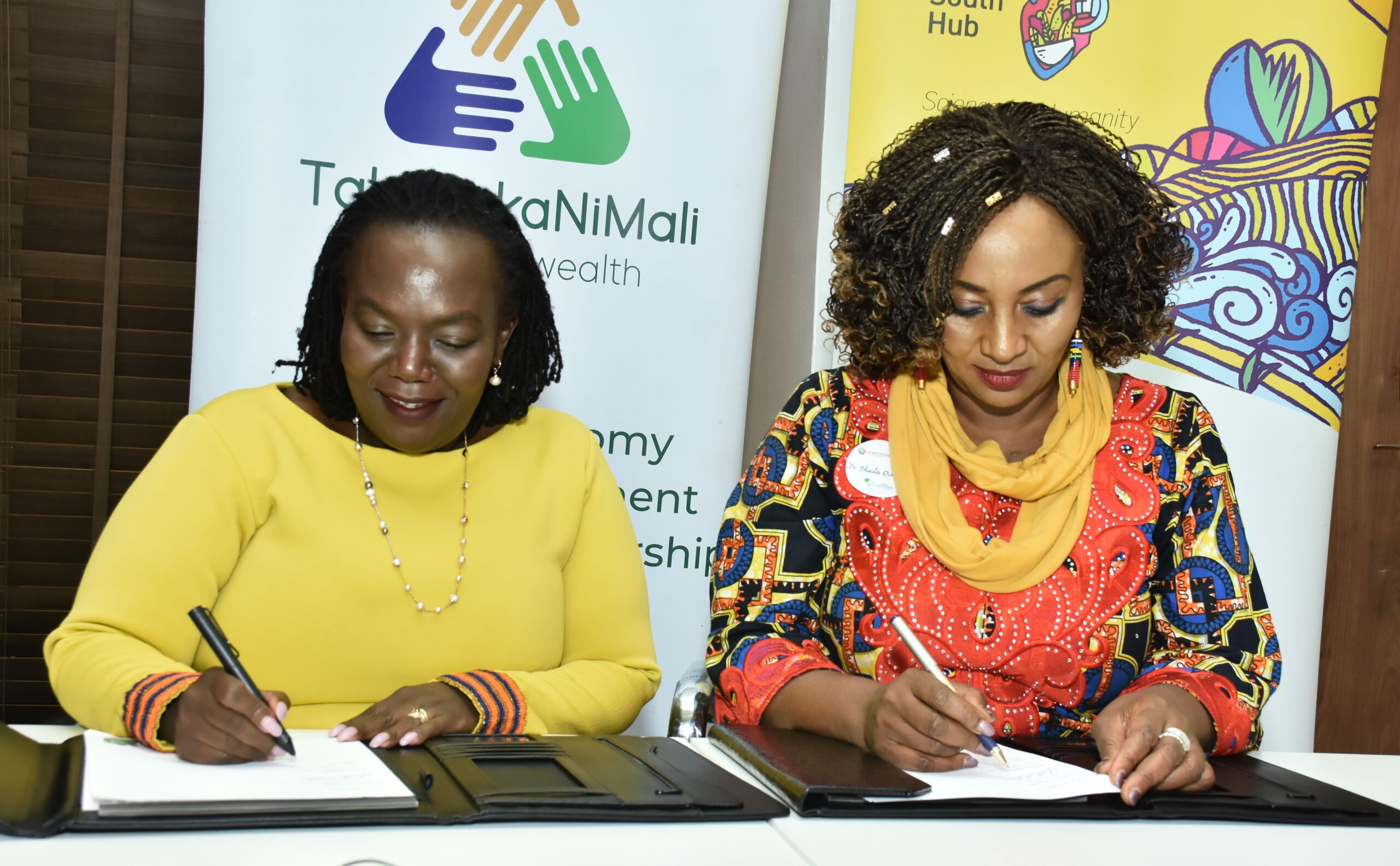
While opportunities for making money are embraced, her long-term plan is to digitize the entire ecosystem.
Away from Taka Taka Ni Mali, Mary is also co-founder and chief executive of Line Plast Group.
“My son is doing that because he has a better understanding of the digital world. When he meets with experts, he can consume what we need to do. We have an innovation – the Eco Loop solution.
“It is about giving organizations data to help them in sustainability reporting. You will find several businesses do not know how to use ESG to audit.
“For instance, recycling procedures. And, if they are conscious, how can they scale? Plastic, if you look at its value, offers money to the person recycling it. The youth also don’t want something complicated and dirty. But when you digitize recycling, you make it easy for them.”
“Solutions are not based on what you think but are instead triggered by the market.”
Mary says Taka Taka Ni Mali trains them and does social media by running Taka Thursday, a conversation that highlights opportunities.
“My son is running this with a huge, young team. He gets what is happening on the ground, and they are tech-savvy.”
![Alliance for Science-Taka Taka Ni Mali partnership agreement signing. [Manyara Kinoti]](https://allianceforscience.org/wp-content/uploads/2023/05/DSC_1876-scaled.jpg)
Away from Taka Taka Ni Mali, Mary is also co-founder and chief executive of Line Plast Group.
Line Plast Group consists of Plast Packaging Industries Ltd which produces high-quality, recyclable, environmentally friendly products, and Line Art Solutions Ltd, the printing and packaging arm of the business.
Successful entrepreneurs are those who are trying to solve a problem by understanding the trends.
These companies were started from absolutely nothing by Mary and her husband, Paul Ngechu Wangaruro, who is the group chair.
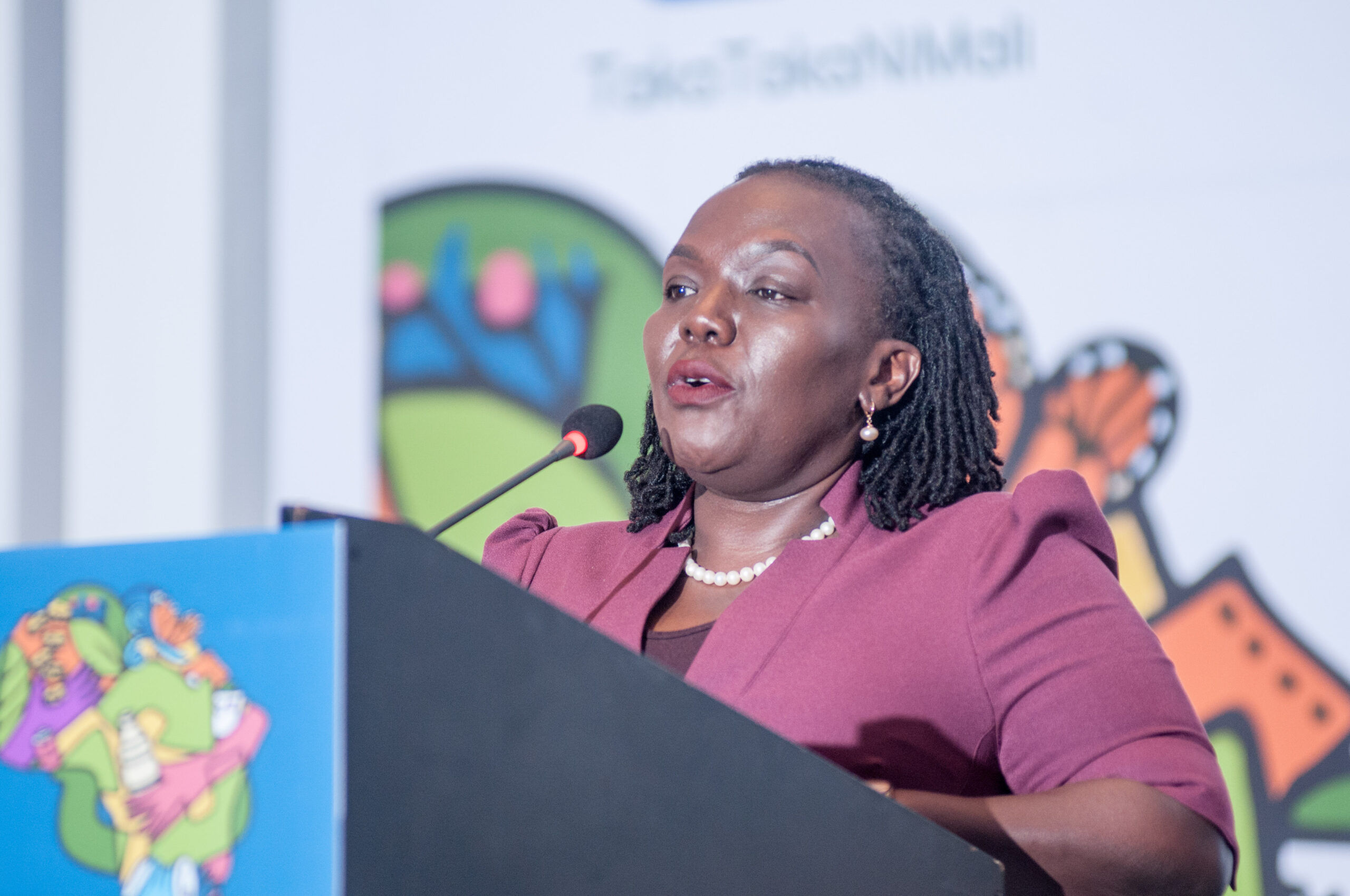
The Ngechus, says Mary, are first-generation and hell-bent on building generational wealth.
They might just succeed because they are feeding into the community of the unemployed, hiring as it were, a good number of families as a medium-sized enterprise categorized as one with more than 50 but less than 249 employees.
Mary did not start as an entrepreneur. She saw an opening when she joined her husband’s printing business; that is how the packaging arm was born.
The biggest responsibility of an entrepreneur is knowing when, and what, to shed off because you can’t take care of your business if you are the everything of it.
Armed with a Harvard University Edx Entrepreneurship in Emerging Economies, Business Administration and Management, General, and having studied the Owner Management Programme at Strathmore Business School, the former telecommunications engineer means business as a woman in manufacturing with the mindset of an engineer.
It means being strategic while simultaneously self-improving.
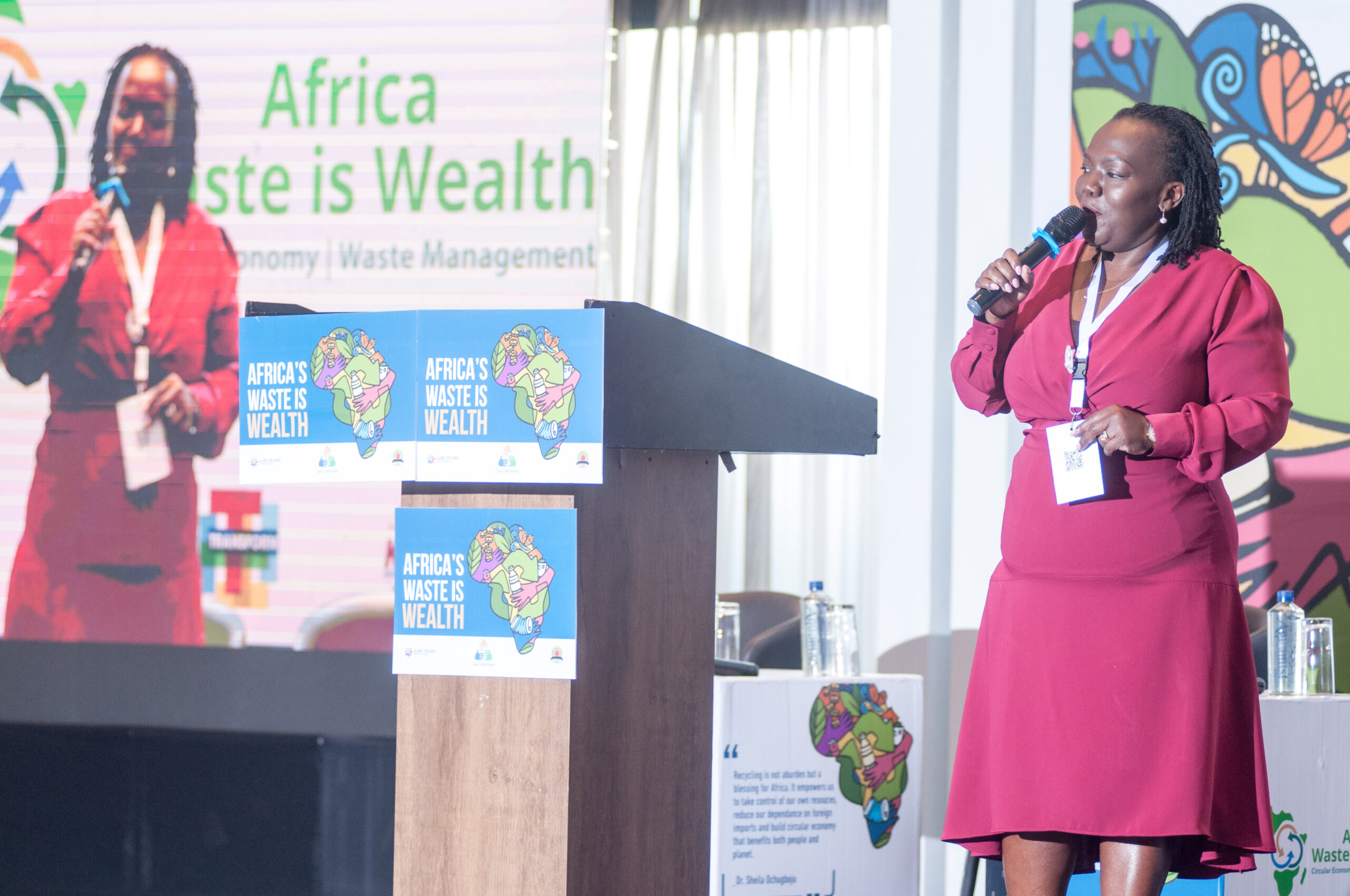
“Solutions are not based on what you think but are instead triggered by the market. Successful entrepreneurs are those who are trying to solve a problem by understanding the trends,” she says.
Meanwhile, the one-woman-act who was the accountant, administrator, HR, driver, wife, and mother is gradually growing a multimillion-dollar business.
“Sometimes, you have to accept that the people you employ on Day 1 may not necessarily have the capacity to grow your business to where you need it to go.”
The biggest responsibility of an entrepreneur, Mary believes, is knowing when, and what, to shed off because you can’t take care of your business if you are the everything of it.
One must know when it is time to onboard professional help, whether human resources or a COO.
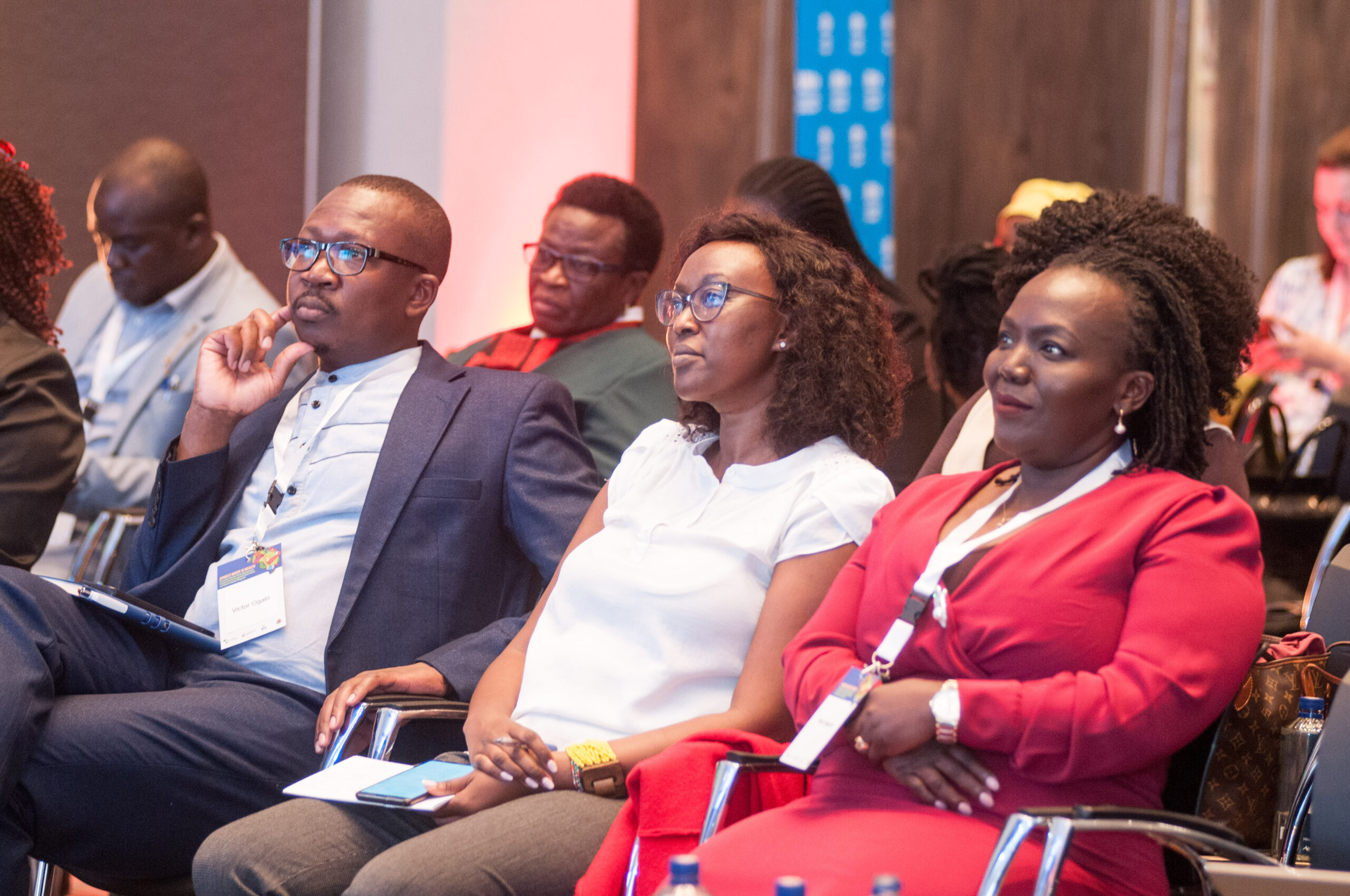
“An entrepreneur needs to be able to weigh their staff. Can they handle your business as it exists? You have heard of Founder’s Syndrome?”
Founder’s syndrome (also founderitis) is the difficulty faced by organizations and particularly young companies such as start-ups, where one or more founders maintain disproportionate power and influence following the effective initial establishment of the organization, leading to a wide range of problems.
The syndrome occurs in both non-profit and for-profit organizations or companies.
“Do not always play the woman card. Yes, get in as a woman, but always be well-equipped. Get to the table with the capacity to contribute and sit at the head.”
“Sometimes, you have to accept that the people you employ on Day 1 may not necessarily have the capacity to grow your business to where you need it to go.
“But as a founder, you can also easily find yourself attached to the first employees you hired. But after five years, it is important to build capacity; get the right people to run the business at the level you need it to be at.”
![Alliance for Science-Taka Taka Ni Mali partnership agreement signing. [Manyara Kinoti]](https://allianceforscience.org/wp-content/uploads/2023/05/DSC_1742-scaled.jpg)
In Kenya, she acknowledges, the first thing you do is employ your cousin or another relative.
Not because they have the capacity to do the job, but because they are the people nearest to you, and you want to solve their problem of putting food on the table.
It is noble, but as the business grows, “you need to listen to the demands and needs of the business and make decisions on what it needs.”
She has noticed, for instance, that the local manufacturing industry is not exactly inundated with women.
“Imagine if there was infrastructure to collect and maximize our waste. Every household would have value for money.”
They do hold jobs, yes, but a post-Covid study by the Kenya Association of Manufacturers revealed they largely held low-level jobs.
There is an aversion to operating machinery, so she has deliberately been working to capacity-build so women can scale the ladder.
“Imagine if there was infrastructure to collect and maximize our waste. Every household would have value for money.”
It is not enough to worry about women working the night shift. These are conversations that must change. Conversations they are trying to change.
It is brain capacity, not physical strength that propels manufacturing. That, and also, automation.
Mary wants to catch them while they are young and connect those who would like to and can with those who do.
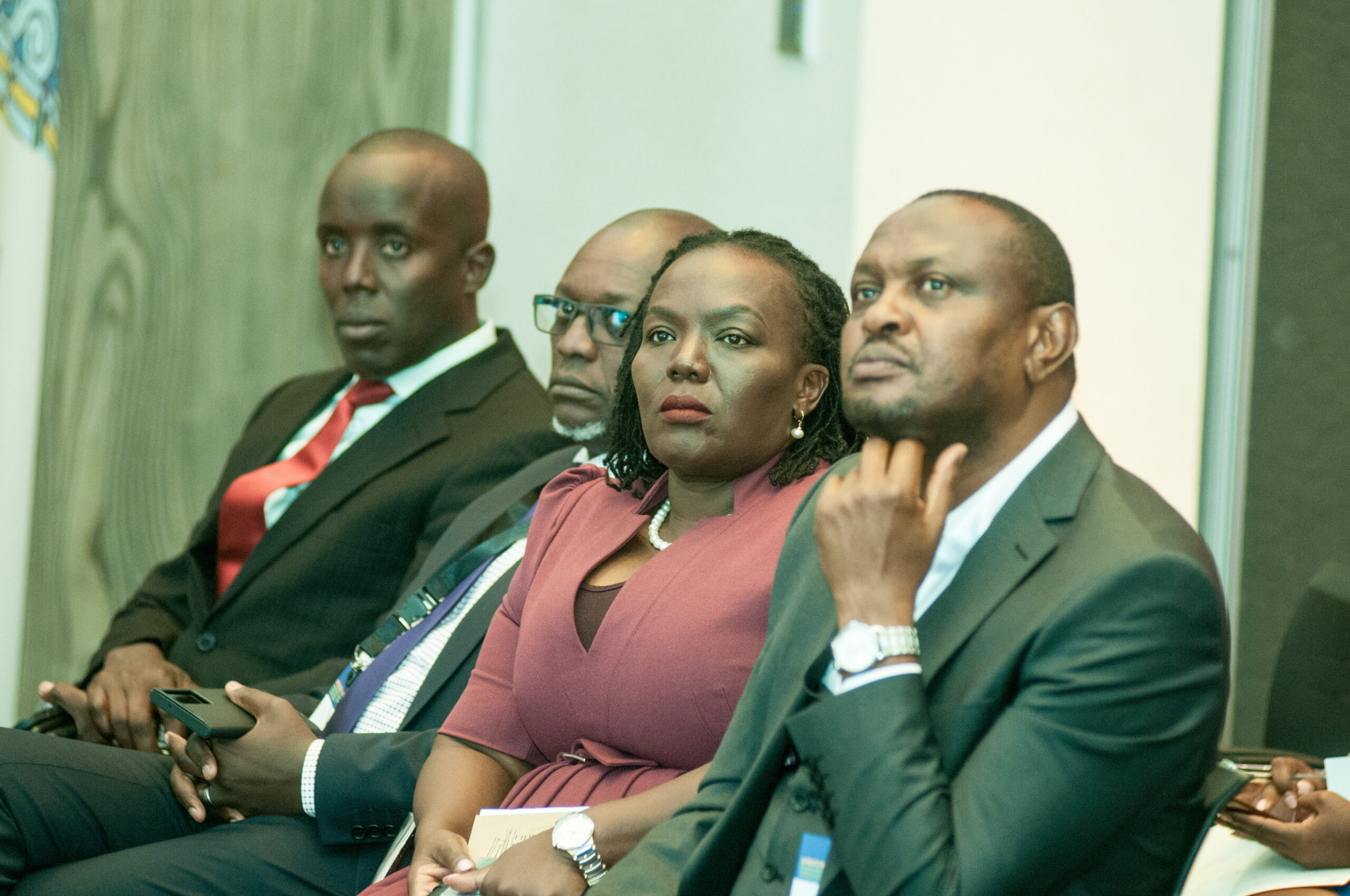
“Do not always play the woman card. Yes, get in as a woman, but always be well-equipped. Get to the table with the capacity to contribute and sit at the head.
“Understand the advantages, incentives, and initiatives in existence but simultaneously strive to be an expert, a professional, and an authority when you appear. The card is there but only because we are pushing for inclusivity,” she says.
“I told my younger son that I would expose him to what businesses are like in Kenya, but it is up to him to understand how what he studied will impact manufacturing locally.”
We then shift the trajectory of the conversation. How does one create generational wealth that does not raise children with a sense of entitlement?
“I am the first generation because I started the business, but I do not want it to die with me. An engineer by training, my eldest son is helping bring new knowledge on Industry 4.0.
“My other son studied electrical engineering and robotics. They cannot come in and do business like their parents have done it. Embrace the young and new. Create room in businesses for them,” she says.
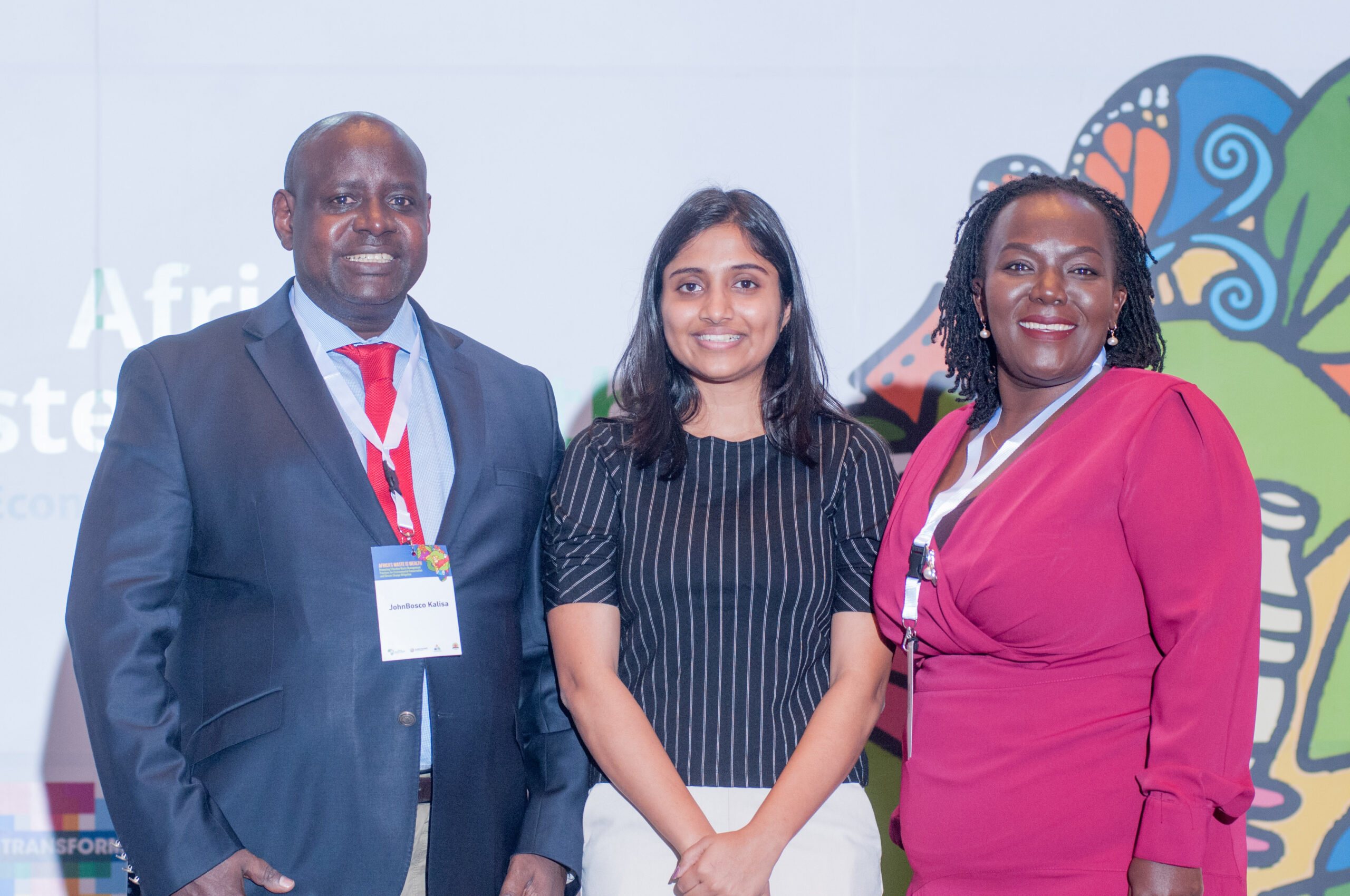
These are no nepo babies either. “I told my younger son that I would expose him to what businesses are like in Kenya, but it is up to him to understand how what he studied will impact manufacturing locally.
What about the middle class? Do they see the beauty of waste management?
“He can go as far as employing people who get the vision. Make him feel like he owns the business. Parents want children who are highly educated but at the same time want them to do business the old way, and then the next generation finds it cannot relate, and this is how we fail at bringing them on board family businesses.”
Speaking of generations. More upcoming research is revealing climate change to be a young person’s game.
Millennials and Gen Z love the possibility of a plastic-free future. It is a journey.
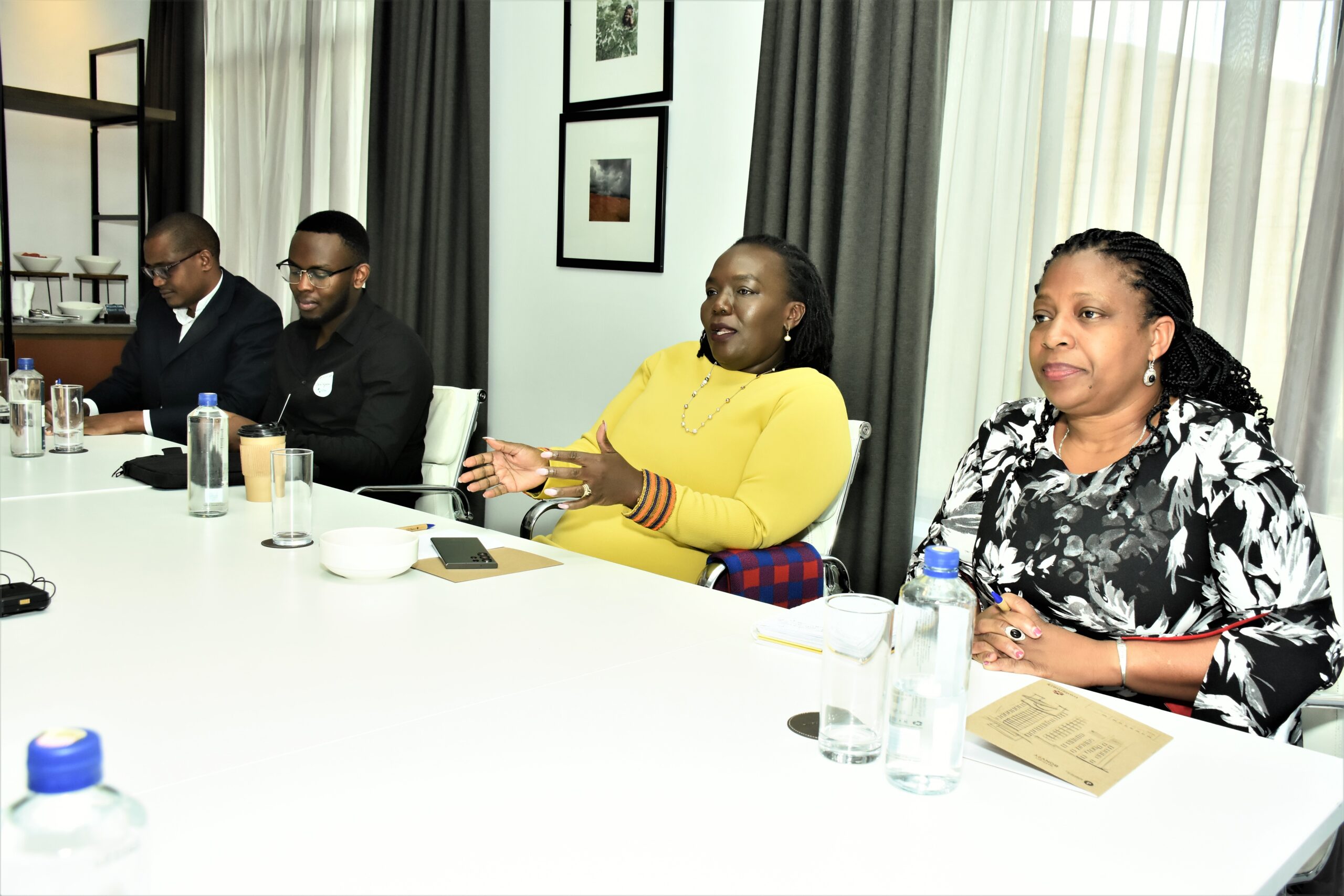
Finally, because it has to be asked. On a scale of 1-10, how much does the government care for the environment? A Waste Management Bill was passed.
Here is some insight into how waste can be handled daily if this becomes law.
“If I am a manufacturer and I am sending my products to the consumer through packaging, the least I can do is be responsible for collecting that packaging. Paper packaging bread and milk is waste.
“Once a manufacturer has delivered products to consumers, the packaging becomes part of the waste. The government will require that the manufacturer be responsible for what they send out into the market and collect the waste. Protect the environment,” she says.
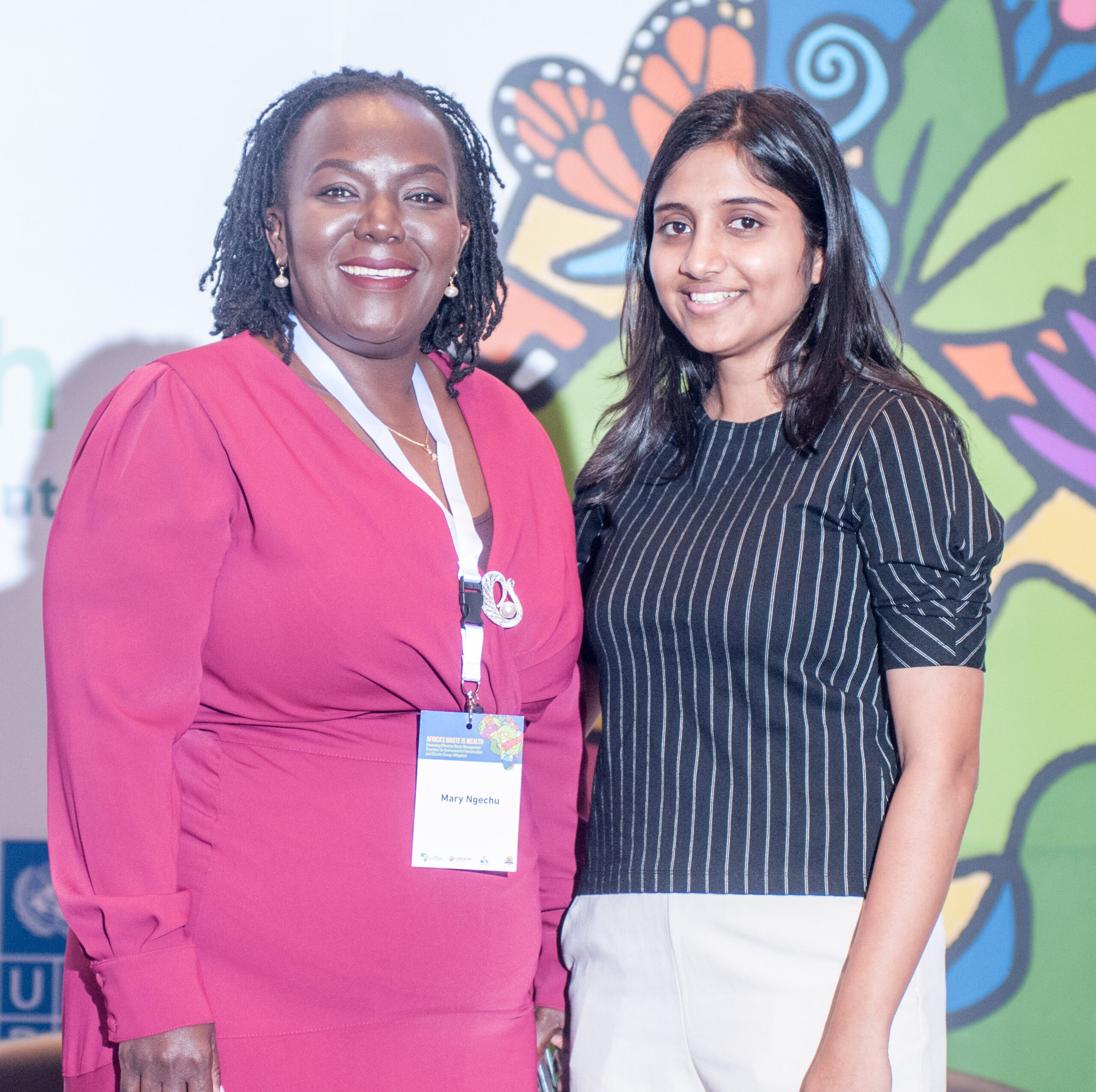
Enter the creation of CBOs that will make it easier to train and support, as well as give data on waste recovery. It will go as far as figuring out how to handle organic waste. Everything from tax incentives to government building an enabling environment is in the works.
“Imagine if there was infrastructure to collect and maximize our waste. Every household would have value for money.”
What about the middle class? Do they see the beauty of waste management?
Mary says it is all about mindset. “Are we seeing it as our responsibility or is it one of those things we are waiting on the government to action? Do you put in any effort?” Erm… I admit that I don’t. Do you?
